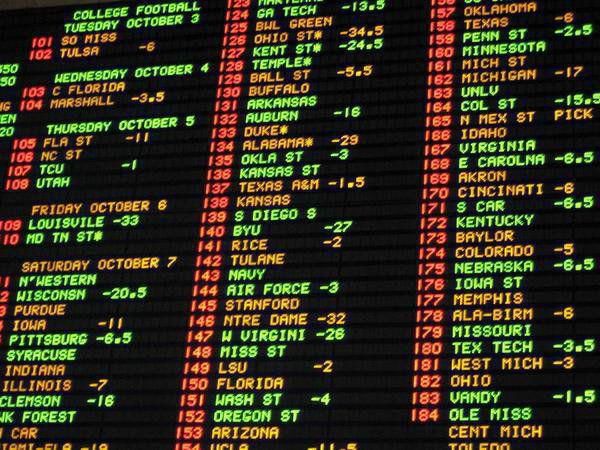Within sports betting, there are many important terms and phrases that you wouldn’t know unless you’ve participated in the activity before. Adding on to that, there are several different bets that you can place, each with a different meaning, purpose, and requirement for winning. Continue reading for our sports betting dictionary to learn some of the most common terms you’ll encounter and some of the most-used types of bets you can place.
#1
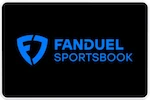
Bet $5, Get $200 in Bonus Bets if Your Bet Wins
Gambling Problem? Call or TEXT 1-800-Gambler 21+ 
5/5
✓ Americas #1 Sportsbook
✓ SGP Profit Boosts
✓ Dinger Tuesdays
Gambling Problem? Call or TEXT 1-800-Gambler 21+ 
#2
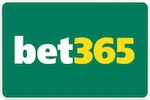
Gambling Problem? Call or TEXT 1-800-Gambler 21+ 
4.8/5
✓ Early Payouts
✓ 100% Parlay Boost
✓ Daily LineUps
Gambling Problem? Call or TEXT 1-800-Gambler 21+ 
#3
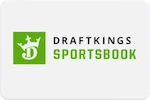
Bet $5, Get $150 in Bonus Bets Instantly
Gambling Problem? Call or TEXT 1-800-Gambler 21+ 
4.7/5
✓ NBA Profit Boost Pack
✓ MLB HR No Sweat
✓ NHL SGP(x) Profit Boost
Gambling Problem? Call or TEXT 1-800-Gambler 21+ 
#4
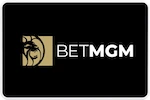
Gambling Problem? Call or TEXT 1-800-Gambler 21+ 
4.5/5
✓ Boost Your Playoffs Bets
✓ NHL Pick A Puck
✓ Hit The Hat Trick Jackpot
Gambling Problem? Call or TEXT 1-800-Gambler 21+ 
#5
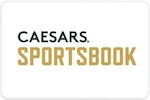
Gambling Problem? Call or TEXT 1-800-Gambler 21+ 
4.3/5
✓ Caesars Rewards
✓ Profit Boosts
Gambling Problem? Call or TEXT 1-800-Gambler 21+ 

Bet $5, Get $200 in Bonus Bets if Your Bet Wins
✓ Americas #1 Sportsbook
✓ SGP Profit Boosts
✓ Dinger Tuesdays
Gambling Problem? Call or TEXT 1-800-Gambler 21+ 
Gambling Problem? Call or TEXT 1-800-Gambler 21+ 
Sports Betting Dictionary & Terminology List
- Accountant: A phrase sometimes used to describe a bookmaker.
- Action: To have a bet on a specific game or individual (I have “action” on the Giants).
- Agent: A person who acts as a broker for a sportsbook and introduces new clients.
- AOPR: An abbreviation for the handicapping term “average opponent power rating.”
- ATS (Against the spread) – This refers to betting on the point spread. If a team is favored to win, betting on the opposing team is betting against the spread. A team’s record ATS reflects their record against the spread. This is also what the ATS in ATS.io is short for.
- Backdoor cover: When a team scores late to cover the point spread after previously being behind and not covering. A backdoor cover typically does not impact the final result of a game, just the point spread.
- Bad Beat – This occurs when you lose a bet that you really should’ve won.
- Beard – A name for someone who places a bet for someone else. This is not to be confused with a runner, which you can find later in this glossary of terms.
- Bet: To risk money, or something of value, on the outcome of an event.
- Book – Short for bookmaker, this is a person or location that you can place bets with. For example, DraftKings Sportsbook and BetMGM are popular books in the United States.
- Bookie – Similar to a book, but carries an assumption that bets are placed illegally. Bettors should not use a bookie and should instead stick to legal sportsbooks.
- Bookmaker: A person or organization that accepts bets; the term is usually reserved for a legal operation.
- Buy-in: The amount you pay to enter a sports handicapping contest.
- Buying Points – This happens when a bettor changes the odds of a betting line by buying points to adjust the line for him. This is typically not a smart move long-term, but can work in the short-term.
- Chalk – The team that is favored to win.
- Circle Game – Betting amounts are restricted due to injuries or due to the game being in a smaller league.
- Closing Line – The betting line just prior to a game beginning. This can differ from the opening line.
- Cover – This occurs when a bettor wins against the point spread. This can happen through an underdog losing by less than the spread (or winning) or through the favorite winning by greater than the point spread.
- Degenerate: A compulsive gambler. Bet responsibly and do not be one of these.
- Dime – Lingo to describe betting $1000.
- Dime line: The difference between the favorite and the underdog is 10 cents, such as Team A-125 and Team B+115, most often used in baseball.
- Dog – This refers to the underdog, the team that isn’t favored to win.
- Dollar – Lingo to describe betting $100.
- Edge – This is an advantage that a bettor feels they have.
- Early money: Money that’s wagered on a team as soon as the lines are made available to bettors.
- Entry fee: The amount required to compete in a sports- handicapping contest.
- Even Money – Even money refers to +100 odds, where bettors can win the same amount that they wagered if their bet were to win.
- Exotic – Any bet (other than a parlay) that isn’t a regular bet. Elaborate prop bets fall under this umbrella.
- Expected Value – How often a bettor can expect to win a bet. The goal for sharp bettors is for this number to be greater than the implied probability from the odds of each wager they play.
- Exposure – How much money a sportsbook can potentially lose on a game.
- Fade: To wager the opposite of a particular bettor.
- Favorite – The team that is supposed to win the game.
- Fixed: A sporting event in which the outcome is predetermined in advance.
- Franklin: Another term for $100.
- Handicap: The method of studying a sporting event or horse racing for betting purposes.
- Handicapping – This refers to predicting the outcome of a game beforehand.
- Handle – The total amount of money bet on the game.
- Hedging – This refers to betting both sides of a bet so you can minimize losses or guarantee a profit in some cases.
- High Roller – Someone who wagers a lot of money.
- Hook – Half of a point in point spread and total markets.
- If bet: A wager placed only if a certain outcome of a separate wager occurs. You can place a $100 wager on Team B if Team A covers the point spread. If Team A covers the point spread, the bettor has $100 on Team B. If Team A doesn’t cover, there’s no bet on Team B.
- Implied Probability – Percentage used to convey the probability of a bet winning based on its odds. For example, -110 odds come with an implied probability of 52.38%. All of the implied probabilities for a betting market add up to over 100%, thanks to the juice or vig for each option.
- Juice (Vig) – This is the commission the book will earn on a game.
- Layoff – Similar to hedging, but this is when a sportsbook will bet with another book to reduce liability.
- Lay: A bet on the favorite in a sporting contest; you give points if betting the point spread and give odds, such as -150, if betting on the moneyline.
- Laying the Points – This occurs when a bettor chooses the favorite to win by at least as many points indicated in the spread.
- Laying the Price – This occurs when a bettor chooses the favorite to win based off which team will result in a higher payoff.
- Limit – The highest amount a book will accept on a specific bet.
- Line: The odds on a particular event.
- Linesmaker: A person who establishes the opening odds on an event. A linesmaker does not accept wagers.
- Lock – A team that is guaranteed to win.
- Longshot – A team that has a very small chance of winning.
- Middle – The act of placing a bet at one price, then placing a wager on the opposite option at a different price. For example, a bettor may wager on a team as a three-point favorite, then on their opponent as a six-point underdog. If the final score falls between those numbers, the bettor wins both wagers.
- Moneyline – This refers to bets only on the outcome of a game, not taking into account a point spread.
- Nickel – Lingo to describe betting $500.
- Odds: The point spread or moneyline on any particular sporting event.
- Oddsmaker: Another term for linesmaker, an oddsmaker is involved with creating the odds on a sporting event, but does not accept wagers on them.
- Off the Board – This happens when a book is no longer accepting bets.
- Opening line: The initial point spread or moneyline offered by the sportsbook to bettors.
- Out: A place where a bettor may place a bet. The goal for any bettor should be to have as many outs as possible.
- Over/Under – This refers to a bet concerning the total points scored by both teams.
- Parlay: A combination of two or more wagers that a bettor links together; all must win for the gambler to win their parlay bet.
- Parlay card: A card used to bet a parlay, but instead of betting on the current odds posted by the sportsbook, the odds for the games are listed on a card that the bettor fills out and turns in to the bookmaker.
- Past post: To make a wager on an event that has already started.
- Pick ‘em – This happens when there isn’t a point spread, meaning neither team is a favorite to win a game.
- Player: Another term for a bettor.
- Pleaser: Like a teaser, but the bettor moves the line against himself in return for a much larger payoff.
- Point Spread: A handicap placed on one team in terms of points for gambling purposes. If Team A is favored by 10 points over Team B, the point spread is 10. Team A must win the game by 11 or more points for its backers to win the bets, while those betting on Team B will win their bets if Team wins the game or losses by nine points or less. If Team A wins by exactly 10 points, the bet is a tie.
- Press: To start wagering more money than usual, generally in an attempt to recoup previous losses.
- Price – This is lingo for the odds/point spread for a game.
- Prize pool: The amount of money up for grabs in a sports-handicapping contest.
- Proposition bets: Often called “prop bets”, these wagers have nothing to do with who wins or loses the game, but are generally player-specific, such as the player to score the first touchdown, passing yards for a quarterback, etc. These are most often used for nationally televised games and are in the hundreds for the Super Bowl.
- Puck line: A hockey bet in which the bettor can either lay the favorite -1.5 goals or take the underdog +1.5 goals.
- Puppy: Another term used for the underdog in a contest.
- Push – This happens when a point spread is exactly met, resulting in no winners or losers. Bets are refunded.
- Reverse: Two separate if bets using the same two teams. A gambler placing a two-team reverse for $100 can win $400 if both games win, but will lose $120 if one game losses and $220 if both games lose.
- ROI: An abbreviation for “return on investment,” referring to the amount of money a sports bettors has won or lost, compared to the amount risked.
- Rundown: A list of all of the odds on games that are scheduled.
- Run Line: A baseball bet in which the bettor can either take the favorite -1.5 runs or take the underdog +1.5 runs.
- Runner: A person who places bets for someone else, but isn’t necessarily trying to hide the identity of the actual bettor. Runners are used in Las Vegas to seek out the best odds at all the different sportsbooks, then bet at the establishment with the most favorable lines.
- Sharp – Someone very good at sports betting.
- Smart money: Money wagered by intelligent bettors.
- Spread – This is shorthand for point spread.
- Sportsbook: An establishment that accepts wagers on sporting events.
- Sports service: An establishment that sells its sports-betting selections to paying customers.
- Square – This is someone who is new to sports betting.
- Steam – This occurs when a betting line shifts rapidly, likely as a result of many bets in a short time frame.
- Stiff: A bettor who doesn’t pay his losses.
- Straight up: The winner of a sporting contest with no regard for the point spread.
- Sucker bet: A wager that greatly favors the sportsbook. For example, almost every parlay is a sucker bet, as sportsbooks hold a much higher percentage of parlay wagers than they do straight bets.
- Syndicate: A collection of gamblers who pool all of their efforts together in an attempt to beat the sportsbooks.
- Taking the Points – This occurs when a bettor chooses the underdog to win (or lose by less than the point spread).
- Taking the Price – This occurs when a bettor chooses the underdog to win based off whichever team will result in a higher payoff.
- Tapped out: When a bettor is broke.
- Teaser: A bet that consists of two or more basketball or football teams in which all the teams have to cover the point spread for the bettor to win. Unlike a parlay, in a teaser the bettor can add or subtract points from the point spread and receives lower odds than a parlay in exchange.
- Total – Similar to over/under, this refers to the total points scored by both teams.
- Tout – An expert on sports betting who will try to sell you his services.
- Underdog – A team that isn’t favored to win.
- Vigorish – Similar to juice, this is the commission a book will earn.
- Wager – Another term for a bet.
- Welch – To skimp out on paying a bet.
- Wiseguy – Another term for someone really good at sports betting.
Sports Bet Types
Now that you know some important terminology, check out some of the common sports bets you’ll encounter:
- Double Action – Also known as an “if” bet, this is an additional bet that only occurs if certain conditions are met during the initial bet.
- Futures – This is a bet placed on an event taking place in the future, while still being relevant to current trends.
- Halftime Bet – This is a bet that is only concerned with the second half action of a game.
- Moneyline – This is a bet that ignores the point spread, only being concerned on who wins the game.
- Parlay – This is a sequence of bets, with each round containing multiple bets. A bettor will bet on the outcomes of multiple games, with winning reinvested for the next round. A bettor can win a parlay by correctly selecting the winner of each bet.
- Prop Bet – This is a special bet offered by a book, using the moneyline style of betting, with a winner decided purely on the outcome of an event.
- Teaser – This is a bet involving multiple games, with the odds adjusted in a bettors favor. A bettor can win a teaser by correctly selecting the winner of each game involved.
- Total (Over/Under) – This is a bet that determines the over/under of the total points scored by both teams in a game.
- Straight Bet – Straight bets are wagers on one outcome to take place, unlike parlays that require multiple results to take place for a bettor to win.
More Sports Betting Help & Information
- 4 Tips For Making Successful Bets
- Basketball Betting Guide – How To Bet On Basketball
- What Are First Half and Halftime Bets?
- Parlay Sports Betting
- What Are Prop Bets – How To Bet Proposition Bets
- Pleaser Sports Betting
- Teaser Betting
- Over Under Betting
- Money Line Betting
- Point Spread & Betting Lines Explained
- What is Against the Spread
- What Does -110 Mean In Sports Betting? Betting Odds Explained
- What is Reduced Juice Betting?
- Bet To Risk vs Bet To Win – Wager Amount vs Risk Amount
- How To Read Rotation Numbers & Sports Betting Odds
- What Is a Progressive Parlay? How To Bet Progressive Parlays
- 3-Way Money Line
